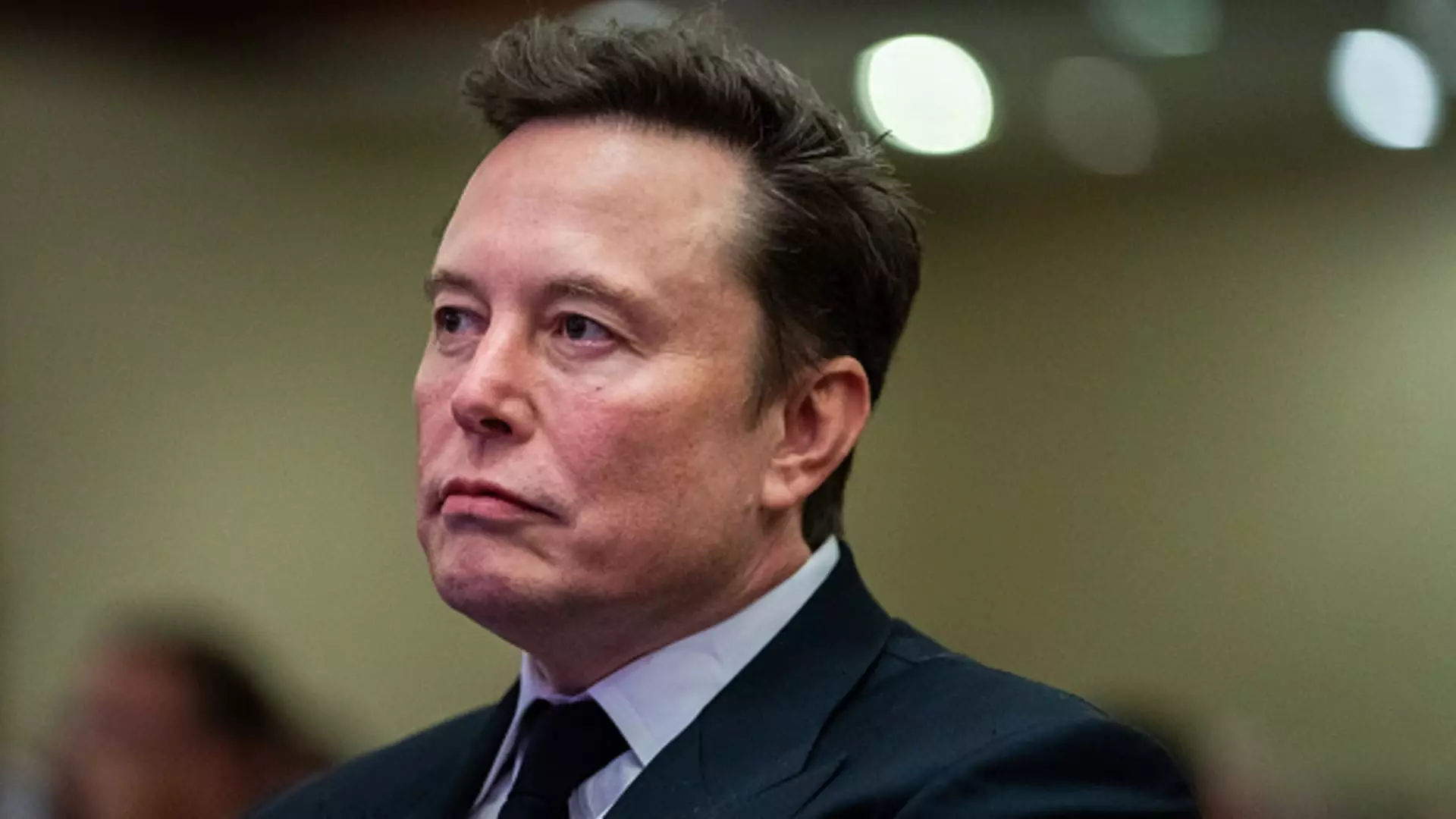The relationship between Elon Musk and the Securities and Exchange Commission (SEC) has always been fraught with tension, and recent developments have only exacerbated that strain. As Musk took to social media to disclose a “settlement demand” from the SEC, the implications of this situation stretch far beyond just the immediate financial concerns. This article will analyze the nuances of this ongoing battle and how it reflects the complexities of corporate governance, the role of regulatory agencies, and Musk’s unorthodox style as a business leader.
Elon Musk’s recent social media disclosure brought to light a letter from his attorney, Alex Spiro, directed to SEC Chair Gary Gensler. The letter indicated that the SEC was applying pressure on Musk to resolve allegations involving transactions related to Twitter shares, suggesting a timeline that imposed a 48-hour deadline for a settlement or else face multiple charges. Such a demand raises questions about the nature of the investigations and the potential motivations behind them. What has been termed as a “settlement demand” is actually a strategic move by the SEC that can provoke varying interpretations of what it means for corporate compliance and transparency.
Musk’s social media antics, which included a fabricated image portraying Gensler in an unflattering light, reflect a broader message of defiance against the regulatory agency. The suggestion that Musk is being subjected to “more than six years of harassment” points to an escalating battle that’s about more than just one billionaire’s legal troubles; it serves as a commentary on the regulatory environment concerning cutting-edge technology firms and high-profile business figures. The contentious language in Spiro’s letter illustrates a belief that the SEC has crossed ethical lines in its investigation methods.
The SEC’s scrutiny of Musk doesn’t occur in a vacuum. Musk’s ventures—specifically Tesla and Twitter (now X)—serve as focal points of innovation and investment. When high-profile entrepreneurs like Musk face regulatory challenges, it sets a precedent for how the market perceives risks and opportunities within emerging businesses. With Musk under investigation for securities fraud related to his Twitter acquisitions, the implications could extend to investor confidence in tech companies at large. Legal troubles for prominent figures often serve to create a ripple effect across the wider investment community, breeding caution among potential investors.
Moreover, the history of tensions between Musk and the SEC, including previous charges stemming from his controversial tweets about taking Tesla private, underscores a potential narrative of a populist tech mogul clashing against institutional systems. This narrative does not just reflect Musk’s character; it symbolizes a struggle within business sectors that thrive on innovation but are often hampered by existing regulatory frameworks that may not understand the full scope of new technologies.
The undertones of Musk’s disdain for regulatory oversight also align with broader political dynamics. The billionaire’s support for Republican candidates and his remarks against the SEC can be read as aligning with larger anti-establishment sentiments that resonate with certain voter bases. The intertwining of Musk’s business actions with political narratives raises questions about how public sentiment can influence regulatory actions. With Musk’s support for figures like Donald Trump, who openly criticized Gensler, one could argue that the case has gained a political dimension that complicates the SEC’s positioning.
At the same time, this situation invites examination of the ethical duties of those at the highest echelons of business leadership. Transparency and accuracy in corporate disclosures are imperative, but Musk’s alleged failure to disclose information is what drew the SEC’s attention in the first place. This leads to a fundamental query about balancing creative entrepreneurship with accountability—the crux of the struggle between innovative leadership and regulatory agencies.
As the SEC and Musk continue their contentious dialogue, the outcome of this unfolding story remains uncertain. The possibility of legal action looms large, and each decision made by the SEC will reflect upon its authority and credibility as a regulatory body. For Musk, the challenge lies in navigating this turbulent legal landscape while preserving his reputation and control over his enterprises. The broader implications of this ongoing saga speak to the challenges many innovators face as they operate in an environment that often resists rapid change. Ultimately, how this plays out could redefine not just Musk’s career, but also how tech leaders approach regulatory relationships in an era where innovation continuously disrupts traditional business norms.

